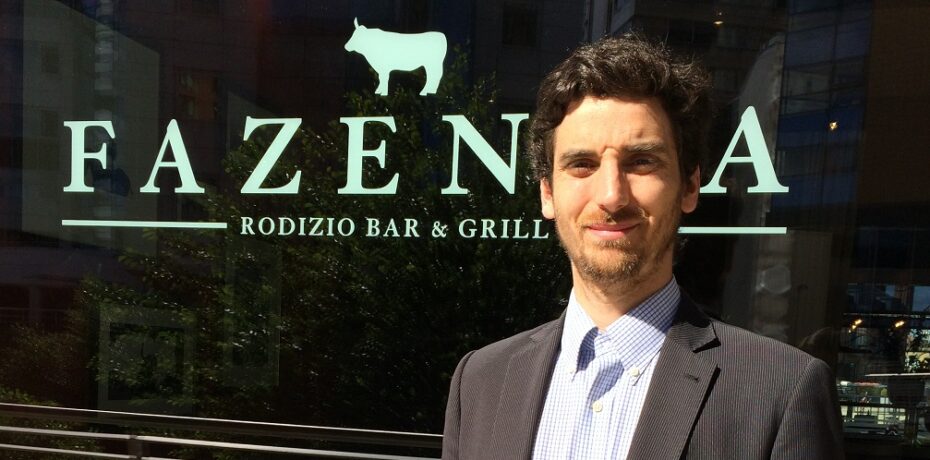Commentary
COMMENT | Brexit and the North’s leisure sector
Both the hospitality and construction sectors employ millions of workers, and they have shared concerns that Brexit’s impact on access to quality labour could impact the growth of the Northern cities, writes Tomas Maunier of Fazenda Restaurants.

While the UK suffers, at the time of writing, the unresolved national agony of Brexit, the impact of the seemingly endless process is becoming all too evident on the leisure and hospitality sector. The sector is closely linked to the property sector, which supplies the buildings and spaces in which bars, restaurants and hotels are located, and here I am seeing a pre-Brexit effect of a delay in decision-making.
As an owner of five Fazenda restaurants in Great Britain, I am certain that activity has slowed due to fears about how Brexit may affect the economy, in particular the discretionary consumer spending which is the lifeblood of the leisure sector.
We have Fazenda restaurants in Leeds, Manchester, Liverpool, Birmingham and Edinburgh as well as Picanha by Fazenda in Chester, and we are on the look-out for new opportunities in other cities. We are seeing developers and landlords offering incentives to tempt companies like ours, but no one is signing up right now. Operators are delaying committing, with one particularly high profile site in Manchester a good example. People are stalling just in case the Brexit which occurs turns out to be one which is bad for the economy.
Any slowdown is a serious matter. The hospitality industry represents a tenth of the UK’s economic wealth and employs 3 million workers. A KPMG study shows in the UK, 75% of waiting staff and a quarter of all chefs are from the EU, and that the hospitality sector could face a shortfall of 60,000 required jobs.
Of our company’s 400 staff, two-thirds are from EU countries outside the UK. That proportion has reduced by 25% over the last few years as staff have left the country, fearing the future here was not going to be beneficial.
While there may be a guarantee that, whatever the Brexit outcome, workers would not have to return, companies like ours will be faced with the fact that in any scenario we will be prevented from hiring from the EU.
The cut of the supply of trained and skilled waiters, bartenders and food technicians would create shortages, leading to wage inflation. Also, we face the long-term issue of all UK leisure business: the training and development of British people, mainly young people, to take hospitality seriously as a career.
I believe this will eventually change in the UK, but it may take a decade of coordinated efforts between the industry, government and education bodies. However, as Brexit causes supply to dry up, companies like us may well be forced into paying higher rates for lower numbers of quality people.
The quality issue is crucial. Anyone can put a plate of food on a table, but there are so many ways that service staff can perform their role. We train people to do their jobs with passion and friendliness, yet as an Argentinian-Brazilian, I see a difference in service workplace culture between the Latin countries and the UK.
Many British people in restaurant work are there to earn money while doing other things, like studying. In Europe and particularly the Southern nations, there is an innate respect for waiters, bar tenders and kitchen staff which is less evident in Britain. They bring a bit of happiness and joy to the experience of eating and drinking out, they love doing their job and they give 100%, and people respect them for it.
With our strong training and service culture, Fazenda is in a strong position for the coming challenge. However, the whole sector needs to face up to what is coming. Earlier this month new research found that a no deal or delayed Brexit could cost the hospitality industry £1.8bn a year by 2024, and that in any Brexit scenario, businesses would lose an average of 23% of their non-managerial workers.
I know the construction industry is also worried about the capacity of the sector to carry on when Brexit kicks in, preventing the hiring of EU workers with trades and other skills. Just like leisure, UK construction also employs 3m people, 8% of the UK’s EU workers, and project costs are already increasing due to similar labour pressures.
Who knows if this will affect the ability of the big Northern cities to continue the fast growth of recent years? The building trade suffers a similar disdain among schools and parents as a ‘proper’ career. When it comes to Brexit, both leisure and construction share common concerns about the access to quality workers. We are all holding our breath about what the Brexit process will ultimately mean for our two highly connected sectors.





Got to be brexit…not the ever inflating business rates…that wouldn’t be enough of a virtue signal.
By Anonymous
Fantastic news, hopefully this will push the wages up for the catering industry.
Another article dripping with Brexit brain washing.
What the hell is a “Argentinian-Brazilian”??
By Sean
“Brexit brain washing”? Just run the upside of Brexit past me again. I’ve only been waiting for 3 years…..
By Gene Walker
Yet again, the negative view of Brexit. Yes, there will be a short term decline in some business activity. However, what is annoying is that few economic advisers, politicians and worse, businesses show any confidence in what is one the most welcoming, diverse, dynamic, original thinking countries in the World. Britain is the nation that gave the rest of the World parliamentary democracy, the first industrial revolution, railways, the jet engine, the first programmable computer, new drugs, medical procedures and treatments, the concept of the NHS and much more. Also, nobody ever mentions the thousands of jobs lost since we joined the EU because of the ridiculous Directives and over oppressive rules (in engineering, fishing and much more). Lastly, and not least there is sovereignty. We gave parliamentary democracy to the World and yet we have given away our Nation’s hard won sovereignty to a collection of unelected bureaucrats in Brussels, and to a European Parliament that comprises political eunuchs – no real power, no real democracy. The EU is not an economic concept – it is a political one and was that back in 1975 when the UK joined (a fact kept from us by the politicians and Prime Minister of the time). If it is not a political organisation, why does it want to have a European Army? If we stay in the EU it will only get worse and national identify and sovereignty will cease to be replaced by a centralised, undemocratic, federal European bureaucracy.
By Roy G Chapman
Not sure ‘Roy’ could have shoehorned any more Johnson / Mogg nonsense into that classic tabloid-(mis)informed rant.
By Nigel in Disguise
Nigel I found your well evidenced and thought out response very impressive…oh wait…you just spat some opinion out appearing to claim the intelectual highground with nothing to back it up.
By Anonymous
I want to hear more from ‘Roy G Chapman’. It will save me buying a copy of the Sun.
By Jez